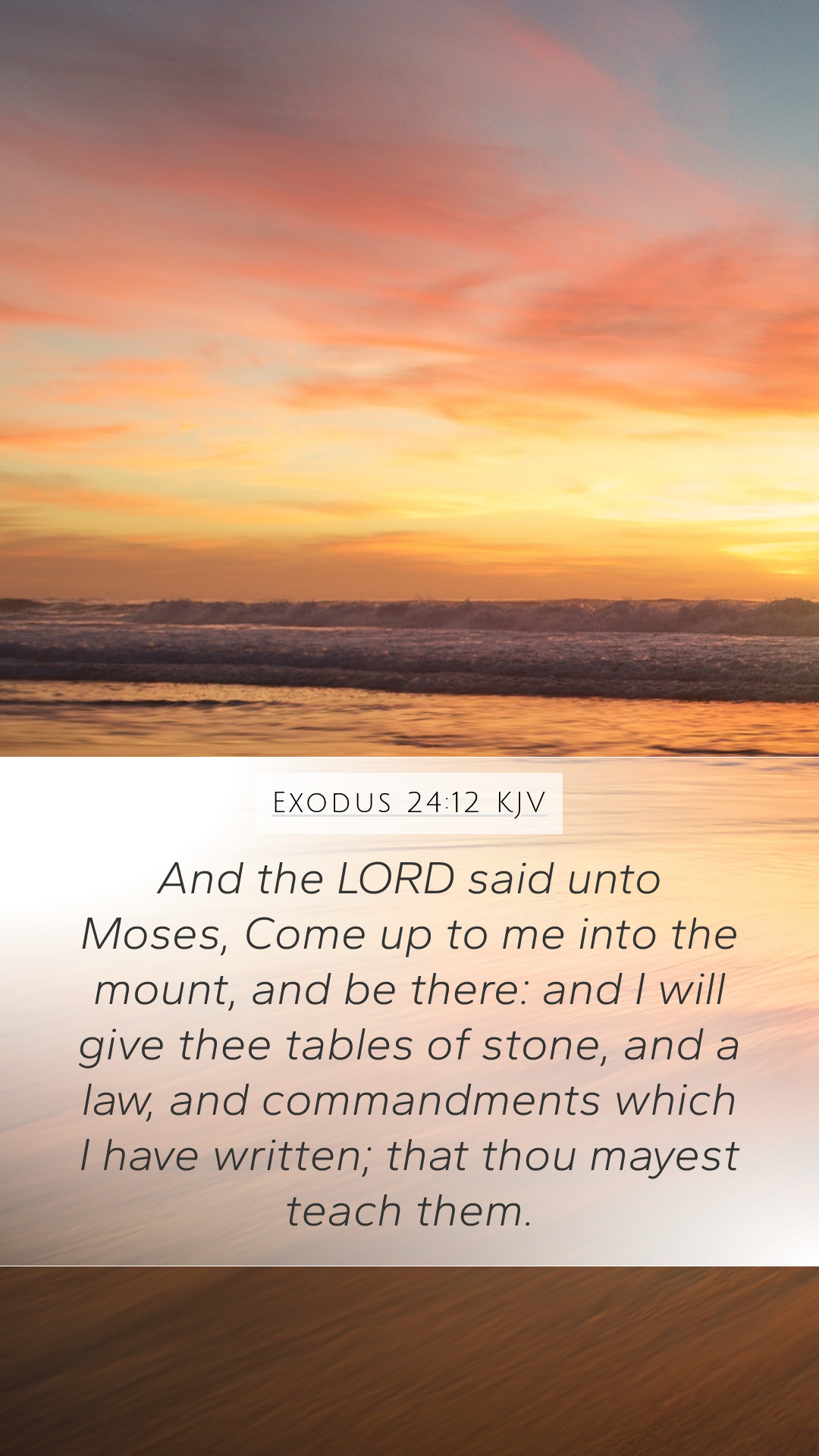Exodus 24:12 - Meaning and Commentary
Verse: Exodus 24:12 states, "And the Lord said unto Moses, Come up to me into the mount, and be there: and I will give thee tables of stone, and a law, and commandments which I have written; that thou mayest teach them." This verse marks a significant moment in the biblical narrative where God instructs Moses to ascend Mount Sinai to receive the Law.
General Overview
This passage highlights the pivotal role of Moses as a mediator between God and the people of Israel. It is within this context that the Israelites begin to receive the instructions that will shape their identity and covenant with God.
Insights from Public Domain Commentaries
Matthew Henry's Commentary: Henry indicates that God's invitation for Moses to ascend the mountain signifies a call to holiness and dedication. It underscores the idea that approaching God requires a certain preparation and sanctification. Moses receiving the Law on tablets of stone emphasizes the permanence and authority of God's commandments.
Albert Barnes' Notes on the Bible: Barnes elaborates on the instructions God gave to Moses. The "tables of stone" symbolize the lasting covenant between God and His people. This moment is not merely about law but about divine revelation and recording God's will for Israel. Barnes also notes that the commandments were intended to be taught to the people, suggesting that education in God's ways is an essential responsibility of leadership.
Adam Clarke's Commentary: Clarke explains that God's command to Moses is an invitation for a special encounter. He highlights the importance of Moses being "there" – indicating a need for focus and readiness to receive God's word. Clarke further emphasizes the law's role in shaping the moral and spiritual life of Israel and its implications for future generations.
Theological Significance
- Moses as a Mediator: The verse signifies Moses' pivotal role as a mediator between God and the Israelites, facilitating a unique relationship defined by the covenant.
- Divine Revelation: The giving of the Law on stone tablets represents a direct communication of God's will and intentions for His people, showcasing the seriousness of divine instruction.
- Authority of the Commandments: The permanence of the commandments is underscored by their inscribing on stone, symbolizing that God's laws are unchanging and foundational to societal structure.
Application for Today
Understanding Exodus 24:12 is vital for contemporary believers. The themes of covenant, obedience, and the sanctity of divine law continue to resonate. Applying these principles involves recognizing the importance of adhering to God's commandments and the role of leaders in imparting biblical truths within communities.
Cross References
- Exodus 31:18: Discusses the tablets of stone given to Moses, reinforcing the importance of the Law.
- Deuteronomy 5:22: Emphasizes the significance of the commandments given to Israel.
- Hebrews 8:6-7: Speaks to the role of Christ as mediator of a better covenant, drawing parallels to Moses' mediatorial role.
Conclusion
Exodus 24:12 serves as a cornerstone for understanding the relationship between God and His people. Through careful biblical exegesis and analysis of public domain commentaries, we gain valuable insights into the meaning of this verse and its applicability for today’s believers. The interpretation of this verse reflects not just historical context, but offers profound implications for personal faith and communal worship.


